 I try to assume the best about all animal welfare organizations…until I don’t. I have found over the last 10 years that most of them do some good, and many do a lot of good. And others, such as the now-defunct NJSPCA–an absurd group of mostly obese wanna-be cops who couldn’t make the grade in real life, do no good, except for themselves.
I try to assume the best about all animal welfare organizations…until I don’t. I have found over the last 10 years that most of them do some good, and many do a lot of good. And others, such as the now-defunct NJSPCA–an absurd group of mostly obese wanna-be cops who couldn’t make the grade in real life, do no good, except for themselves.
But I never counted the ASPCA, the American Society of Prevention of Cruelty to Animals, in that disgraceful group. And I still don’t. It definitely does some real good. And yet I am chagrined to see the just-released results of a CBS News investigation that shines a light on the “A’s” (as many call it) spending, specifically the percentage of donations that goes to actually help animals, and where the rest goes. According to CBS, “The ASPCA says the vast majority of donor dollars go directly toward its mission, but a CBS News investigation found there are questions about whether the money is going where donors expect.”
How is that? Well, the investigation continues, “Since 2008, the ASPCA has raised more than $2 billion for animal welfare. In that time, it has spent $146 million, or about 7% of the total money raised, in grants to local animal welfare groups. But during that same time period it spent nearly three times that, at least $421 million, on fundraising. Over $150 million of that went to Eagle-Com Inc, a Canadian media production company, to produce and place ASPCA’s ads. I can only wonder how many tens of thousands of animals could have been saved, treated, loved and adopted out with $421 million dollars.
Certainly, you’ve seen the ads, unless you literally never watch television. They are heartbreaking, showing covering, shivering, and terrified animals, while a mournful Sarah McLaughlin tune, “In the Arms of an Angel,” plays in the background. Heartbreaking to me, and very effective tugs on the heartstrings of all but the coldest humans imaginable.
Now, obviously, any group funded by donations has to fundraise, and it’s not cheap or easy. But as someone who’s donated a couple times to the A, I became increasingly annoyed that once they had my address, they bombed my mailbox frequently with unwanted and unnecessary “gifts”–calendars I would never use, return address labels I didn’t want, “membership cards” with nowhere to present them, or just slick and glossy appeals for more money, which I would have happily given, except for the fact that I was mad as hell that they were using my original donations on such nonsense.
Moreover, the investigation points out, they give very little of those millions to the local SPCA organizations that do much of the heavy lifting, rescuing animals from abusive and hoarding situations, as well as providing veterinary care and adoption services. Unfortunately for those local organizations, much of the public wrongfully assumes that they’re local chapters of the larger ASPCA. Wrong. They have no affiliation whatsoever, and as the investigation points out, “CBS News spoke to more than two dozen local SPCA’s across the country. A few had received grants worth a few thousand dollars from the ASPCA, which they had applied for. Most, like in Nassau County and Houston, had gotten nothing.”
Finally, and I’m going to pick on him because it’s deserved, the CEO of the ASPCA earned more than $840,000 last year. I choked on that. Granted, it’s just one and the top exec, but for a non-profit organization that ostensibly exists to help homeless and abused animals, that kind of money is far beyond reasonable or remotely justifiable.
So…you can donate to the ASPCA, and again, they do some good works. But better yet, look for a local SPCA, or find a deserving rescue group or shelter, and put your money where it will do the most good. And you can start with my shelter, Sammy’s Hope in Sayreville, NJ, or Island Animal Alliance, which rescues homeless dogs (“Satos”) from Puerto Rico.
You can find the CBS News clip here.
 MOST ANIMAL SHELTERS IN THIS COUNTRY ARE PART OF A BROKEN SYSTEM, ONE THAT HURTS INNOCENT, HOMELESS ANIMALS MOST OF ALL. BUT IT ALSO HARMS HEROIC STAFF AND VOLUNTEERS.
MOST ANIMAL SHELTERS IN THIS COUNTRY ARE PART OF A BROKEN SYSTEM, ONE THAT HURTS INNOCENT, HOMELESS ANIMALS MOST OF ALL. BUT IT ALSO HARMS HEROIC STAFF AND VOLUNTEERS.
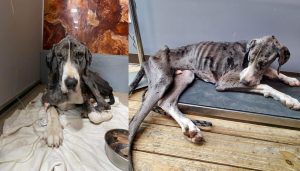
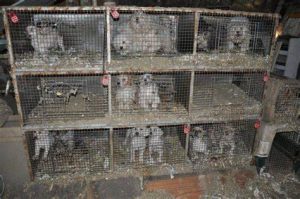
 But until now, even I didn’t know how corrupt the USDA is, not just in ignoring its job to regulate and oversee breeders, but even corruptly covering up horrific crimes of animal cruelty: “Yet, days after the DOJ negotiated surrender of the [4000] beagles [from a
But until now, even I didn’t know how corrupt the USDA is, not just in ignoring its job to regulate and oversee breeders, but even corruptly covering up horrific crimes of animal cruelty: “Yet, days after the DOJ negotiated surrender of the [4000] beagles [from a 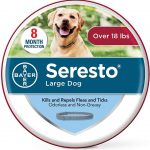 In May 2021, I posted that SERESTO Flea and Tick Collars had been implicated in almost 2000 pet deaths and more than 75,000 incidents and illnesses, from relatively minor effects, such as animals suffering itchiness and skin irritation, to serious emergencies including seizures, convulsions, and, yes, horrible deaths. Vets and health experts say this is no mere coincidence.
In May 2021, I posted that SERESTO Flea and Tick Collars had been implicated in almost 2000 pet deaths and more than 75,000 incidents and illnesses, from relatively minor effects, such as animals suffering itchiness and skin irritation, to serious emergencies including seizures, convulsions, and, yes, horrible deaths. Vets and health experts say this is no mere coincidence. I try to assume the best about all animal welfare organizations…until I don’t. I have found over the last 10 years that most of them do some good, and many do a lot of good. And others, such as the now-defunct NJSPCA–an absurd group of mostly obese wanna-be cops who couldn’t make the grade in real life, do no good, except for themselves.
I try to assume the best about all animal welfare organizations…until I don’t. I have found over the last 10 years that most of them do some good, and many do a lot of good. And others, such as the now-defunct NJSPCA–an absurd group of mostly obese wanna-be cops who couldn’t make the grade in real life, do no good, except for themselves.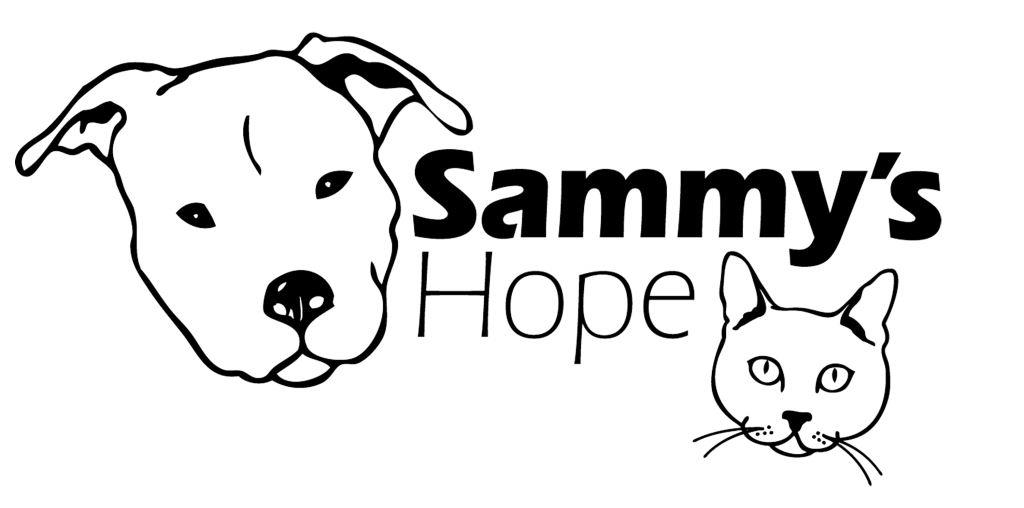
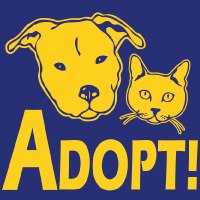 If you love and care about dogs, come–sit–stay (and listen)!
If you love and care about dogs, come–sit–stay (and listen)!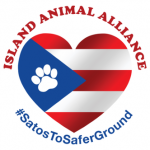 The podcasts feature lots of shelter dog talk, and in my case the story of pitbull “Sammy,” our wonderful
The podcasts feature lots of shelter dog talk, and in my case the story of pitbull “Sammy,” our wonderful  A friend of mine, and the most dedicated animal advocate I’ve ever known, runs this wonderful animal shelter in South Carolina, so I want to give the place a plug!
A friend of mine, and the most dedicated animal advocate I’ve ever known, runs this wonderful animal shelter in South Carolina, so I want to give the place a plug!
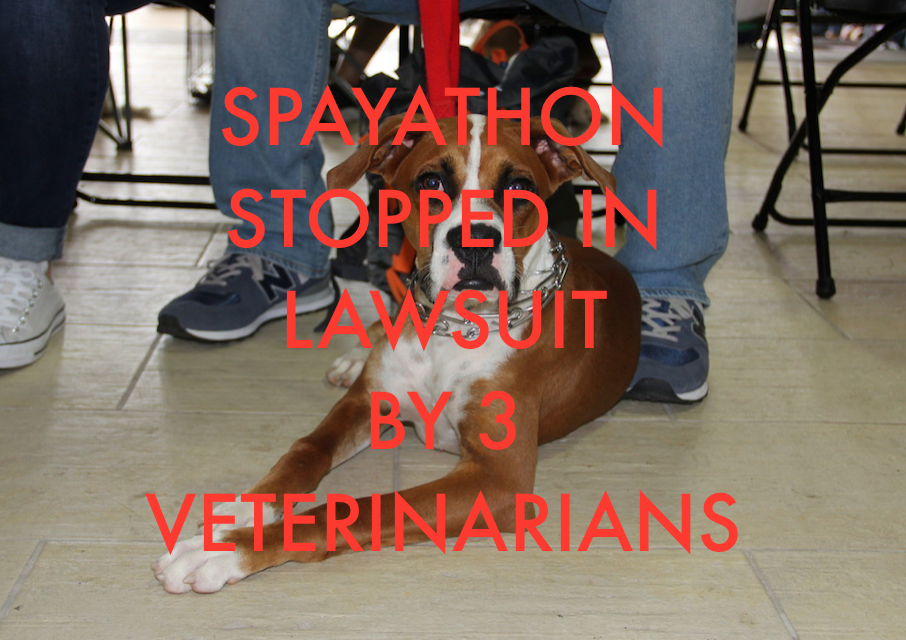 I apologize; this is a month old but it is OUTRAGEOUS. I apologize for the length, but please read it all and respond if you can. Hundreds of thousands MORE homeless animals will be born, suffer, and die if this is not fixed. Thank you.
I apologize; this is a month old but it is OUTRAGEOUS. I apologize for the length, but please read it all and respond if you can. Hundreds of thousands MORE homeless animals will be born, suffer, and die if this is not fixed. Thank you.
